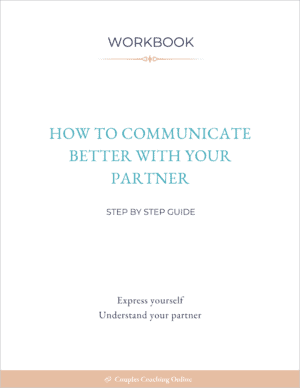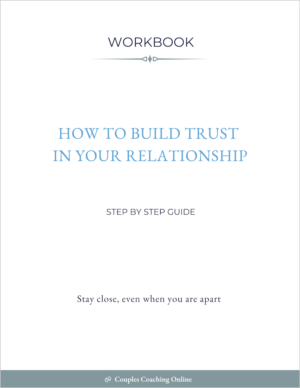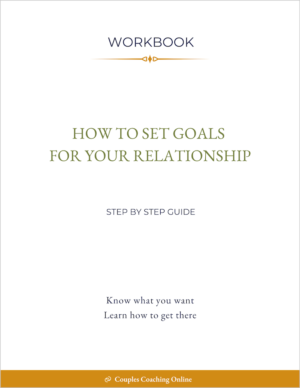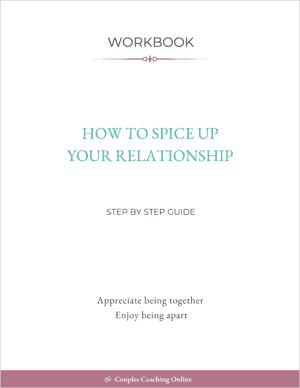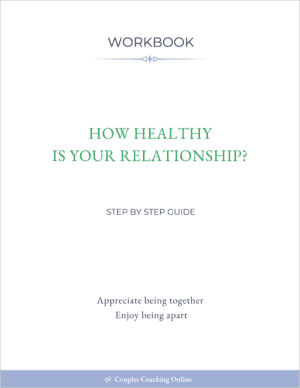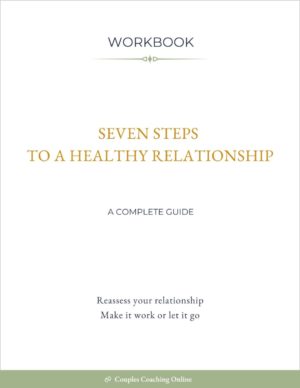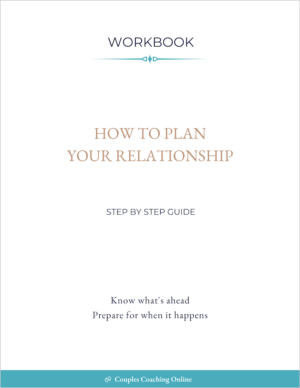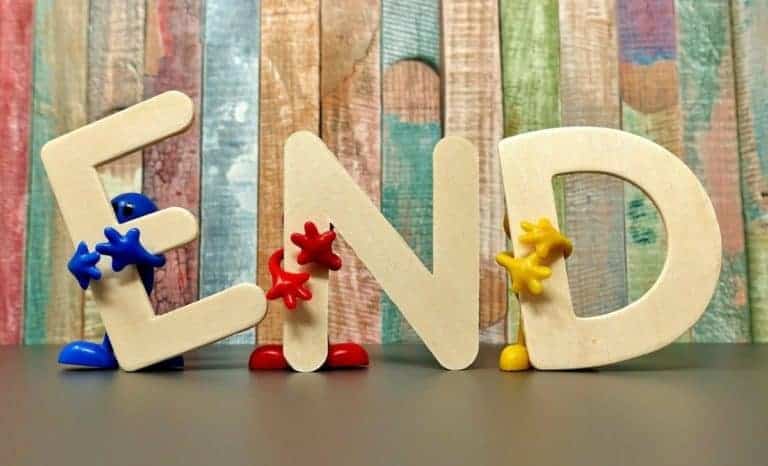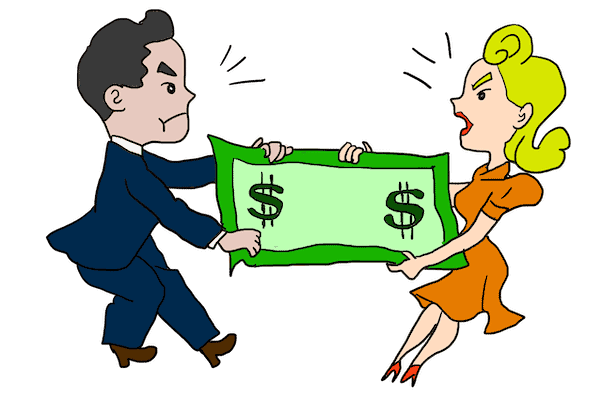14 Most Common Relationship Problems You Can Not Ignore

Wondering if your relationship’s challenges are shared by others? In this article, we’ll explore the everyday struggles that many couples encounter, making the journey of love feel a little less lonely.
Many relationship problems originate from poor communication or lost feelings. A healthy relationship requires good communication and the willingness to face problems together. Unresolved issues can breed negative feelings, which can in turn lead to common relationship problems, ranging from unmet emotional needs and sexual problems to a serious problem that can be a deal breaker. To avoid being stuck in an unhealthy relationship, both you and your partner should have good communication to address the underlying issues.
Look out for warning signs and remember to learn from past experiences to avoid making the same mistakes in a new relationship. While many couples struggle with similar problems, it’s usually the successful couples that aren’t afraid to get professional help like couples counselling or couples coaching.
Let’s take a look at the most common relationship problems, some signs that you might be having relationship issues and a few practical tips on how you can tackle each specific relationship problem. Let’s dive right in…
1. Communication Breakdowns
Communication breakdowns can manifest in various ways, such as misinterpreting intentions, not feeling heard, or even avoiding certain topics altogether. It’s important to address these issues promptly, as unresolved communication problems can destroy the relationship over time.
Poor communication leads to misunderstandings. When one partner can’t express themselves clearly and the other partner doesn’t have the ability or willingness to understand what they mean, confusion is inevitable and good relationships are near impossible.
Without effective communication, it’s impossible to address problems. Unresolved issues accumulate and can lead to resentment, which in turn may create even more relationship problems.
A happy and healthy relationship is only possible when every partner is open to honest communication without the fear of being judged.
Here are some tips to help you avoid common relationship problems and communication breakdowns:
- Actively listen
- Express yourself clearly
- Share your feelings
- Spend time to connect
- Pay attention to nonverbal cues
- Take responsibility
- Develop understanding
- Be patient and empathetic
- Designate quality time for meaningful conversations.
Effective communication skills are essential for developing understanding and resolving conflicts. While disagreements are normal, finding healthy solutions is crucial.
Just remember that your partner is their own person, so the way they communicate and understand the world may be different from yours.
Even the strongest relationships can face communication breakdowns. When partners struggle to understand each other, it can lead to misunderstandings, frustration, and eventually emotional distance.
Acknowledging communication problems is the first step towards resolving them. Check out this workbook for some guidance.
Once you improve communication, you’ll be able to connect with your partner stay on the same page and avoid having the same fight over and over again.
2. Trust Issues
When trust is compromised, many relationships fail because of unaddressed doubts and suspicions. When you or your partner feel jealous and insecure, it could be a sign of trust issues. Unless these issues are addressed immediately, there’s a chance that cheating is just around the corner. Distrust can give rise to negative emotions like anger, frustration and sadness and can slowly poison the relationship.
Trust can become a problem when:
- You are facing doubts and uncertainties.
- You continuously worry about what your partner is doing.
- Either you or your partner don’t feel comfortable expressing yourselves openly.
The best way to deal with doubts is to discuss them with your partner. Once they are out in the open, they have less influence over your thinking and behaviour.
By sharing your inner worries with your partner, you are welcoming your partner’s help. Your partner can reassure you or offer some practical help.
3. Intimacy Challenges
In romantic relationships, intimacy is a way for partners to express themselves and connect in a tactile and sensual way, because sometimes words aren’t enough to convey the deeper emotions.
Emotional intimacy is closeness and connection that a person experiences within, while physical intimacy is an external expression of this inner experience. While sex is part of physical intimacy, kissing, hugging or simply holding hands are all equally important.
Intimacy issues are quite frequent in many relationships. They can be caused by faded feelings or boredom from the daily routine. The moment you lose interest in your partner, your intimacy fades and your relationship starts falling apart.
During the early stages of romantic relationships, sexual intimacy brings people together. However, it’s not uncommon for one partner to have different sexual needs from the other partner. So, as the relationship progresses, one partner may feel satisfied with their sex life, while their partner may remain unfulfilled.
A lack of sexual intimacy along with an unfulfilling sex life can lead to sexual frustration and resentment. If you experience any issues with sexual intimacy, try the following:
- Address any issues with emotional connection.
- Identify any sexual problems either you or your partner may have.
- Consider any other factors, physical or emotional.
- Talk to a sex and intimacy coach who can help you identify underlying issues and improve your sex life.
Key takeaways
- Emotional connection is key to sexual intimacy and a fulfilling sex life.
- Trust and honest communication can help increase intimacy.
- A healthy relationship requires both physical and emotional intimacy.
- Talking about your feelings and sharing your thoughts and ideas can help reinforce trust, strengthen the connection and bring you closer to your romantic partner.
- Regular date nights, and planning fun, exciting and spontaneous activities will bring the spark back into your love life.
Signs of intimacy issues
- Feeling annoyed with your partner for no specific reason (just because they are present).
- You or your partner want to be with other people but feel forced and obligated to stay in this relationship.
4. Lack of Quality Time
Busy lives sometimes result in neglecting each other. Between work, responsibilities, and everything else, sometimes it feels like there’s barely a moment to catch your breath, let alone spend quality time with your partner.
But here’s the thing: lack of quality time can slowly chip away at the intimacy and closeness you share. It’s not about the quantity of time, but the quality of the moments you share. Try to inject little moments of connection into your day, whether it’s through a sweet text, a shared meal, a date night or even a short walk.
These seemingly small gestures can work wonders in keeping your connection strong, even when you hit a few bumps. Remember, it’s not about grand gestures; it’s about the intention behind them.
5. Different Goals and Priorities
Different goals and priorities can be a major source of tension and potential relationship issues.
It’s okay to have different personal goals as long as you can support each other in achieving them and as long as they don’t conflict with each other.
Relationship goals, on the other hand, need to align if you are to have a successful long-term relationship. Otherwise, it’s like you are walking together on separate paths. This misalignment can result in conflicts, negative feelings, unfulfillment, and a lack of shared purpose.
Without understanding each other’s feelings, core values and goals, you may perceive them as having other priorities. After a while, you may feel insecure thinking that your romantic partner doesn’t want to spend time with you anymore.
Setting and achieving goals revolves around personal values, preferences and desires.
Look for ways to support each other’s individual growth while working together towards a shared vision to ensure that your relationship progresses in the right direction.
Remind yourself that you are on the same team and offer your partner the support or space they need to pursue their dreams and ambitions. Just be mindful of red flags that may suggest relationship issues. To help you along, check out this workbook on setting relationship goals.
6. Unrealistic Expectations
Unrealistic expectations can lead to common relationship problems and misunderstandings. Serious long-term relationships carry greater expectations.
When one partner expects the other to always know what they want or need, it can lead to disappointment. For instance, if you expect your partner to plan a surprise date for your anniversary without explicitly communicating it, and they don’t, you might feel let down.
Talk about your expectations to make sure you are on the same page. For example, if one partner desires more affection and the other isn’t aware of it, it can lead to feelings of neglect and distance.
Sometimes unmet expectations reveal differences in core values. For example, if you expect your partner to prioritise spending time with your family, but they have a different view, it can create conflict.
- Acknowledge and talk about your expectations openly.
- Establish realistic and mutual expectations.
- Find a middle ground where both you and your partner feel heard and understood.
- Periodically discuss your expectations to ensure you’re on the same page. People change, and so do their expectations.
7. Financial Issues
Money matters can jeopardise even the strongest bonds.
Financial strain can put a significant strain on relationships, and it’s important to recognize how it can lead to various problems. Money matters are often cited as one of the top causes of relationship stress. Financial issues can lead to other relationship problems.
Partners might avoid discussing money problems due to embarrassment, fear of conflict, or differences in spending habits. Differences in financial goals, priorities, and spending habits can lead to disagreements and conflicts.
Financial difficulties are widespread challenges that can cause problems in casual short-term relationships just as much as marriage problems. Find ways to enjoy activities that don’t strain your finances.
Stress from financial issues can lead to a decline in physical and emotional connection. Spend time to discuss financial matters openly and try to understand each other’s financial perspectives, concerns, and goals.
8. Boring Relationship
Routines often involve doing the same activities or following the same patterns regularly. While they can bring stability and provide comfort, they can also lead to predictability and create a sense of boredom.
If every day starts to feel like a repetition of the last, excitement and spontaneity might disappear. You end up doing the same things and your relationship becomes boring.
Taking each other for granted is a sure way to start losing emotional connection. Stay open to change and keep communication flowing, to ensure that routine doesn’t turn into boredom.
Check out this workbook to spice up your relationship.
As your relationship grows into something serious, it’s important to maintain a fulfilling love life with regular date nights and romantic activities. When relationships start to get boring, a neglected love life can cause negative feelings and insecurities. Once you or your partner feel resentment, it’s a sure path to an unhealthy and possibly toxic relationship.
9. One-Sided Effort
One-sided effort in a romantic relationship is a red flag. When one partner consistently invests more time, energy, and emotional effort into the relationship than the other, it can lead to feelings of neglect and resentment.
This imbalance can manifest in various ways, such as one partner consistently making plans, initiating communication, or addressing issues, while the other seems passive or disengaged. This behaviour could suggest that your partner has other priorities and may not have your best interest at heart.
If your partner is unwilling to step up, it can be a deal breaker.
Discuss your needs and expectations and try to understand each other’s perspectives. It’s essential to work together to find a more equitable balance, ensuring that both you and your partner contribute to the relationship’s growth and well-being. Mutual effort and commitment are fundamental for a happy and healthy relationship.
10. Unhealthy Boundaries
Unhealthy boundaries in a relationship can create a range of problems and challenges. These boundaries are often characterised by a lack of clarity regarding each partner’s personal space, emotional needs, and individuality.
Signs of unhealthy boundaries can include excessive dependence on one another for emotional fulfilment, a lack of privacy or personal time, and difficulty in expressing individual desires or concerns.
These issues can lead to a sense of suffocation, emotional exhaustion, and conflict. It’s crucial to establish and maintain healthy boundaries that allow each partner to maintain their autonomy and self-identity.
If your partner repeatedly crosses your boundaries, it could be a deal breaker.
11. Manipulation
Manipulation, a complex dynamic in relationships, involves the subtle or overt attempts to control another person’s thoughts, feelings, or actions for personal gain. It often disguises itself under the guise of care or concern, making it challenging to recognise.
Manipulative behaviours can take various forms, such as
- guilt-tripping
- emotional blackmail
- intentionally distorting facts to create confusion.
Pay attention to the warning signs and if in doubt get a fresh and unbiased perspective from a neutral person like a therapist or a relationship coach.
In the meantime learn more about manipulation in a relationship in our in-depth article.
12. Controlling behaviour
Controlling behaviour is a sign of a potentially unhealthy and imbalanced relationship dynamic.
It often indicates that one partner seeks to exert power and dominance over the other, attempting to dictate their thoughts, actions, and decisions.
This behaviour can lead to a lack of autonomy, erode trust, and undermine the emotional well-being of the partner being controlled.
Recognising controlling behaviour early is crucial, as it can be a sign of a toxic or at the very least unhealthy relationship.
13. Gaslighting
Manipulation and controlling behaviour can prevent you from expressing yourself and leave you feeling powerless.
Recognising gaslighting in a relationship is the first step toward regaining control over one’s reality.
Validating your experiences, seeking support from trusted friends or professionals, and setting firm boundaries can help break free from the manipulative grip.
14. Unresolved Personal Issues
Unresolved personal issues can certainly have a ripple effect on your relationship. It’s important to remember that we all have our struggles, but when left unchecked, these issues can seep into your relationship and create challenges. Here’s how different unresolved personal issues can impact your relationship:
Doubts and Insecurities
When you doubt yourself or feel insecure, it can affect your confidence in the relationship. Constantly seeking reassurance or questioning your partner can create negative feelings, compromise trust and cause unnecessary conflicts.
Anxiety and Jealousy
Anxiety can cause you to overthink situations and jump to conclusions. Jealousy, fueled by insecurity, might lead to unwarranted suspicion and accusations, eroding trust and causing tension.
Fears and Resentment
Unresolved fears and past resentments can influence your behaviour. Holding onto past hurts might lead to defensive reactions and prevent emotional intimacy.
Depression
Depression can impact your energy, enthusiasm, and ability to engage in the relationship. Your partner might feel helpless or unimportant if you’re struggling to find joy.
Remember, the goal isn’t to eliminate these issues entirely but to manage and work through them together. By acknowledging and addressing your personal struggles, you’re taking a crucial step towards a healthier, more fulfilling relationship.
How To Fix the Most Common Relationship Problems
First of all, identify how you are feeling and what unfulfilled needs you currently have. Once you know that, you can share your feelings and concerns with your partner. So, that both of you try to understand the cause of the problem and find a solution.
Express yourself openly and freely
Acknowledge your feelings, share your worries and concerns and discuss all relationship issues with your partner.
Listen attentively
Create a safe space for your partner to express their concerns. Ask your partner how they feel about your relationship issues.
Be patient and understanding
Whatever challenges life throws at you, they should be addressed immediately.
Free-flowing communication is essential in addressing these differences, allowing partners to understand each other’s perspectives and find common ground. Progress might not be immediate.
Be patient with each other as you navigate these issues together.
Set boundaries
If certain topics trigger your personal issues, communicate and set boundaries. This can help prevent unnecessary conflicts.
Look after yourself
When you take care of your mental and emotional well-being, you’re better equipped to contribute positively to the relationship.
Learn from past experiences
Spend time reflecting on how your previous relationships ended and what you can learn from them to do better in your present relationships.
For some guidance, take a look at our article on how to end your current relationship in a healthy way. It will not only help you and your partner separate on good terms, but it will also teach you valuable lessons that you can apply in your new relationship. Here’s a complete step-by-step guide to help you get started.
To deal with a particular relationship problem you should understand the root cause and know how to fix it. While some relationship problems can be fixed with good communication, others require professional help like couples therapy or couples coaching.
Once you’ve done all you could, you may find that your relationship has run its course. In this case, ending it could be the best option for you and your partner. When it’s time to end your current relationship how you can do it in a loving and respectful way is important.
In a nutshell, when a relationship no longer contributes to your life and well-being, it could be time to let it go.
Seek professional help
When in doubt, consider couples therapy or speak to a professional couples coach, which you can easily do online for privacy and convenience. If personal issues are overwhelming, consider getting a coach individually or as a couple.
A relationship coach can guide you through the process of working through these challenges and figuring out what isn’t working and how to fix it.
Working together with your partner, on the same team, you can find a solution that works for both of you.
Conclusion
In the early stages of a romantic relationship, it’s easier to address personal differences. As your relationship grows, a simple difference of opinions can become a serious problem.
Marriage problems are even harder to tackle, especially if you’ve been married for twenty years or more. That said, every relationship problem can be resolved with the right guidance, effort and willingness.
Today, we’ve explored the most common problems in a romantic relationship. Previous relationships are an incredible opportunity for self-reflection. The more you can learn from your past experiences, the better chance you have of creating good relationships now and in the future.
As long as you have your partner’s best interest at heart and they have yours, you can solve most challenges that life throws your way.
Don’t shy away from couples therapy and coaching to help you along. A relationship coach can help you address unresolved issues and teach you strategies to get your relationship back on track. If you have a burning issue that you’d like to resolve right away, book a coaching session to speak to a professional coach.
When you take care of the following three challenges, you greatly increase the chances of enjoying life with your partner:
- Bad communication leads to misunderstandings.
- A lack of physical intimacy leads to unfulfilled sexual needs.
- A lack of goals and planning leads to an unhealthy relationship without direction.
This workbook is a good starting point for planning your relationship.
It’s likely that your partner also has doubts and insecurities, so give them the chance to share and listen to their struggles, so you can support them in the way they need.
Many couples struggle to find common ground and overcome challenges. But successful couples aren’t afraid to recognise when things get too much and are open to getting help from couples therapy, couples counselling or couples coaching.
If you need professional advice, get in touch. We’ll guide you towards the best help for your particular situation.
Frequently Asked Questions about Relationship Problems
What are signs that your relationship is failing?
Signs of a failing relationship can include ineffective communication, frequent misunderstandings, unresolved conflicts, constant arguments, same fight, lack of emotional connection, unmet emotional needs, lack of trust, incompatible values, and disinterest in spending time together. Recognising these signs early on can help you address relationship issues before they escalate.
What are the biggest relationship issues?
Some of the biggest relationship issues include poor communication, trust issues, conflicting priorities, intimacy challenges, and unresolved conflicts. These challenges are common but can be managed with open communication and effort.
What are the types of relationship problems?
Relationship problems can vary widely and include communication breakdowns, trust issues, financial conflicts, differing life goals, lack of quality time, and sexual intimacy challenges. Understanding these types of problems can empower you to find effective solutions.
What is a common personal relationship problem?
A common personal relationship problem is struggling to find a healthy balance between personal growth and maintaining a strong partnership. Balancing individual aspirations with shared goals is key to a harmonious relationship.
At what point is a relationship over?
A relationship may be over when there is a consistent lack of emotional connection and frequent unhappiness, and both partners are unable to resolve major issues. Recognizing when to let go can lead to a healthier path forward.
When should you call it quits in a relationship?
It might be time to consider ending a relationship if there is persistent emotional or physical abuse, chronic unhappiness, or the partners have grown apart and no longer share common values. Prioritizing your well-being is essential in such situations.
What are the top 3 reasons why relationships fail?
The top reasons relationships fail often include poor communication, lack of trust, and differing life goals. Addressing these issues head-on can prevent them from becoming insurmountable obstacles.
How do you fix a broken relationship?
Fixing a broken relationship requires open communication, mutual effort, seeking professional help if needed, addressing the issues, and a commitment to personal growth. Rebuilding trust and connection takes time and dedication.
What are some of your deal breakers in a relationship?
Deal breakers in relationships can include lack of respect, infidelity, dishonesty, substance abuse, and refusal to work on personal growth. Setting and respecting boundaries is crucial for a healthy partnership.
Why do most relationships fail?
Most relationships fail due to a combination of factors like poor communication, trust issues, incompatible life goals, and the inability to navigate challenges effectively. Addressing these factors early can increase the chances of success.
What determines a toxic relationship?
A toxic relationship is characterised by emotional or physical abuse, manipulation, control, constant negativity, and a lack of respect or consideration for one another. Recognising these signs is crucial for your well-being.
Does every relationship have problems?
In any relationship, you can expect to have problems and challenges. But, it is up to you, your willingness, skill and ability to resolve these problems that define how they impact your relationship.
Who to talk to about relationship problems?
A relationship coach can understand you individually as well as the dynamic of your relationship. A good coach can help you identify the causes of your problems and offer different ways to address them. With our couples coaching, you get a new perspective on your situation. An impartial advice that will help you to make a more educated decision that works for you and your partner.

